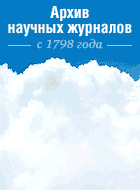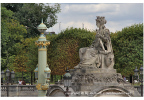Другие журналы
scientific edition of Bauman MSTU
SCIENCE & EDUCATION
Bauman Moscow State Technical University. El № FS 77 - 48211. ISSN 1994-0408
In Wired Singapore Classrooms, Cultures Clash Over Web 2.0
05.11.2010
 Dozens of freshmen at Singapore Management University spent one evening last week learning how to "wiki," or use the software that lets large numbers of people write and edit class projects online. Though many said experiencing a public editing process similar to that of Wikipedia could prove valuable, some were wary of the collaborative tool, with its public nature and the ability to toss out or revise the work of their classmates.
Dozens of freshmen at Singapore Management University spent one evening last week learning how to "wiki," or use the software that lets large numbers of people write and edit class projects online. Though many said experiencing a public editing process similar to that of Wikipedia could prove valuable, some were wary of the collaborative tool, with its public nature and the ability to toss out or revise the work of their classmates."It's dangerous, actually," said Liu Huan, one of the students, in an interview after the training session. "I can change everything that others have done."
Why is that so bad? It puts students in the awkward position of having to publicly correct a peer, which can cause the corrected person to lose face.
"It's a very Asia context," said the student sitting next to Ms. Huan, who said her full name is Arathi. "You have to be more aware of others and have a sensitivity to others."
While colleges have been trumpeting the power of social media as an educational tool, here in Asia, going public with classwork runs counter to many cultural norms, surprising transplanted professors and making some students a little uneasy.
Publicly oriented Web 2.0 tools, like wikis, for instance, run up against ideas about how one should treat others in public. "People were very reluctant to edit things that other people had posted," said American-trained C. Jason Woodard, an assistant professor of information systems who started the wiki project two years ago. "I guess out of deference. People were very careful to not want to edit their peers. Getting people out of that mind-set has been a real challenge."
Students are also afraid of embarrassing themselves. Some privately expressed concern to me about putting unfinished work out on the Web for the world to see, as the assignment calls for them to do.
Michael Netzley, an assistant professor of corporate-communications practice at the university, said he has also faced hesitancy when asking students to use social-media tools for class projects. Few students seemed to freely post to blogs or Twitter, electing instead to communicate using Facebook accounts with the privacy set so that only close friends could see them, he said.
"The students here seem to display a certain resistance or reluctance to actually adopting education 2.0 in a deeper or more meaningful fashion," said Mr. Netzley, an American scholar who got his Ph.D. at the University of Minnesota. "In a small country like Singapore, the traditional face-to-face network still reigns supreme. Members of a network are extremely loyal to that network, and if you are outside of it, a lot of times you aren't even given the time of day."
Yet the professor argues that he has a duty to train students to master skills that employers now look for, whether the students like it or not.
By Jeffrey R. Young
Full text of the article - on The Chronicle website
Photo: The Chronicle
| Authors |
| Press-releases |
| Library |
| Conferences |
| About Project |
| Phone: +7 (915) 336-07-65 (строго: среда; пятница c 11-00 до 17-00) |
|
||||
| © 2003-2024 «Наука и образование» Перепечатка материалов журнала без согласования с редакцией запрещена Phone: +7 (915) 336-07-65 (строго: среда; пятница c 11-00 до 17-00) | |||||



